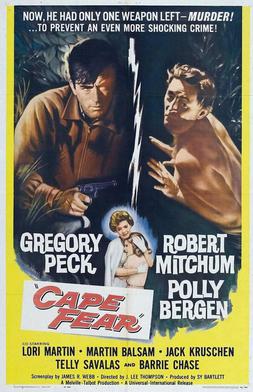 |
| Robert Ryan, Robert Mitchum, and Robert Young in Crossfire |
Cast: Robert Young, Robert Mitchum, Robert Young, Gloria Grahame, Paul Kelly, Sam Levene, Jacqueline White, Steve Brodie, George Cooper, Richard Benedict, Tom Keene, William Phipps, Lex Barker, Marlo Dwyer. Screenplay: John Paxton, based on a novel by Richard Brooks. Cinematography: J. Roy Hunt. Art direction: Albert S. D'Agostino, Alfred Herman. Film editing: Harry Gerstad. Music: Roy Webb.
As long as Edward Dmytryk's Crossfire stays twisty and not preachy, this tale about antisemitism is a lot better than the other picture on the same topic that beat it for the year's best picture Oscar, Elia Kazan's Gentleman's Agreement, in which the sermon was built in. A Jewish businessman (Sam Levene) is found beaten to death in his apartment, and the suspicion falls on some demobilized servicemen with whom he had been drinking in a bar. One of them, Mitchell (George Cooper), has disappeared, and the detective in charge of the case, Finlay (Robert Young), initiates a manhunt, aided by one of Mitchell's fellow servicemen, Keeley (Robert Mitchum). When he's located, Mitchell is not quite sure where he has been that evening, but he has a hazy memory of going to the victim's apartment with Montgomery (Robert Ryan), a fellow soldier, and then picking up a woman named Ginny (Gloria Graham) in another bar. Crossfire is sometimes a little askew when it comes to psychology, as in Mitchell's brain fog and the murderous antisemitism of the killer, but it's full of enough sharp dialogue and colorful performances to keep your attention. Grahame and Robert Ryan got Oscar nominations, Paul Kelly is good as the enigmatic guy who may be Ginny's husband (probably a bit of hedging about their relationship to placate the Production Code enforcers), and even the usually bland Robert Young, on the verge of becoming America's father who knows best, shows a little toughness. In the source novel by Richard Brooks, the victim was gay and the motive was homophobia, and a hint of that remains in the scene between Mitchell and the victim in the bar.












